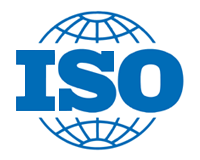Implementing ISO 9001 in any organization first requires the development of the necessary knowledge, skills and understanding to enable the practical application of the standard. At this stage organizations often seek the help of a consultant but this is often unnecessary since the required understanding can easily be sought for free.
The
ISO 9001 Training section provided by ISO 9001 Checklist is intended to give any business a knowledgeable foundation that ensures their quality management system is highly robust. It could save you 0000's in consultancy fees.
The Concept behind ISO 9001 Training
ISO 9001 Training is a unique internet browser based tutorial solution that provides expert practical guidance for businesses wishing to interpret ISO 9000 fundamentals to help better understand and implement the requirements of ISO 9001:2008. It could help your business to get the most out of your quality management system, and it's free to use!
The ISO 9001 training section represents a body of knowledge which explains the requirements of the standard in plain English coupled with practical guidance and interpretation. The online
ISO 9001 Training section divides the standard into four sections that follow the Plan, Do, Check and Act cycle. The page menu then subdivides each section into Principles, Base Clauses and Requirements for easy comparison. Each stage of the cycle then relates each clause of ISO 9001:2008 to the key concepts that lie at the heart of quality management.
How does it Work?
Simple, it encourages the use of the PDCA cycle as a means to implement your quality management system by prompting the user to:
PLAN your quality system's high level processes, define your quality policy and establish your quality objectives in accordance with the expected output. Consider; how will the quality management system be documented, what resources will be needed, who will have responsibility for what and how will the effectiveness of the system be evaluated and communicated.
DO carry out day-to-day activities by performing the necessary processes in accordance with any planned arrangements. Gather performance information by undertaking audits and other measurements as planned.
CHECK the results and analyse the information gathered through various measurements and monitoring activities to determine whether the quality management system has achieved what it set out to do.
ACT by using the results from internal audits, preventive actions and management reviews to ensure the continual improvement of your quality management system; continual improvement should be the organization's permanent objective.
What Happens after Implementation?
You need to choose a registrar. The registrar is a third party certification auditor who will assess your quality management system and issue a certificate if it meets the requirements of ISO 9001:2008. In choosing a registrar you should consider their industry experience, geographic coverage, price and service level offered. The key is to find a registrar who can meet your requirements. For further information regarding national accredited certification bodies, please visit UKAS.
Pre-assessment by your registrar normally takes place about 6 weeks before registration. The purpose of the pre-assessment audit is to identify areas where you may not be operating in accordance with the standard. This allows you to correct any deficiencies before registration.
Prior to registration, you should arrange an initial assessment with your registrar. At this point the registrar will review your quality management system (by interviewing staff, observing activities and checking records) to decide whether you should be recommended for registration.

